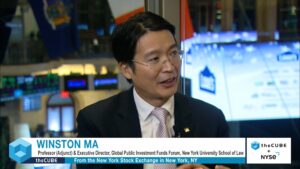
Rupert Hoogewerf, Hurun Report Chairman and Chief Researcher, presented on Wednesday in Beijing “the Hurun Future Unicorns – Global Gazelles Index 2024, a list of the world’s start-ups founded in the 2000s but not yet listed on a public exchange and most likely to ”go unicorn”,(meaning hitting a valuation of US$1bln) within three years,” writes the ECNS.
ECNS:
Rupert Hoogewerf, Hurun Report Chairman and Chief Researcher, noted that Hurun Gazelles represent the most exciting startups in the world that are most likely to “go unicorn” within three years. Their animal counterpart is famous for agility and incredible bursts of speed, reaching speeds of close to 100 km/h. In much the same way, Hurun Gazelles have to run fast, or – like their animal counterparts – they may get eaten and never make it to a Hurun Unicorn.
“The idea behind the Hurun Gazelles is to help them find more investors, strategic partners and service providers as well as encourage the founders to think bigger, grow faster and go further,” noted Hoogewerf, adding that over a quarter of Hurun Gazelles are already leveraging AI to transform sectors, with fintech, blockchain, and SaaS seeing the most disruption.
Specifically, BioTech and HealthTech represent the hottest pipeline for the next generation of unicorns, the Hurun Gazelles. Innovations in medical devices, BioTech, and digital health are transforming disease treatment, diagnostics, and patient care, with China and the U.S. leading this healthcare revolution, Hoogewerf explained.
According to the List, China has more Hurun Gazelles than the rest of the world combined except for the U.S. In the past five years, China has seen the number of Hurun Gazelles more than tripling from 70 to 258. BioTech and semiconductors stand out as the industries with the most number of future Chinese unicorns. By city, the “Big Two” are Shanghai and Beijing, followed by Shenzhen, Hangzhou, Guangzhou and Suzhou.
Rupert Hoogewerf is a speaker at the China Speakers Bureau. Would you like him at your meeting or conference? Contact us or fill out our speakers’ request form.
Are you looking for more stories by Rupert Hoogewerf? Do check out this list.







